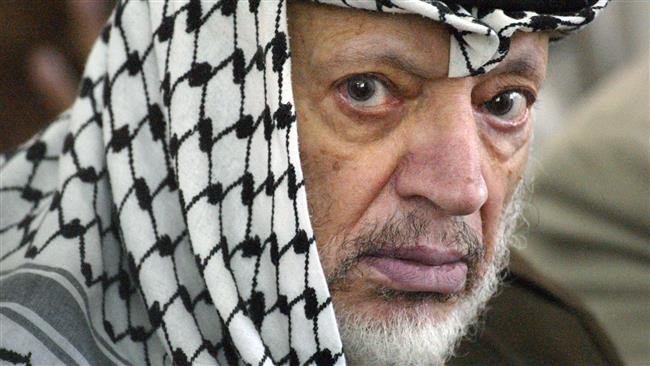
RNA - Speaking in an exclusive interview with Palestine’s Arabic-language Shehab news agency, Bassam Abu Sharif said former US president, George W. Bush, had contacted Saudi officials after a meeting with former Israeli prime minister, Ariel Sharon, during which Arafat's liquidation was discussed, and Saudi authorities consented.
Abu Sharif went on to say that the Riyadh regime approved of Arafat’s assassination, because it viewed him as an obstacle to the Arab Peace Initiative, which envisioned a so-called two-state solution to the Israeli-Palestinian conflict.
“Sharon met with Bush at the White House and told him that he could no longer keep his promise of not physically attacking Yasser Arafat, because he was a leading terror figure and collaborating with Hamas, and that Hamas operations were carried out with the approval and blessing of Arafat,” the senior member of the PLO pointed out.
Abu Sharif highlighted that Bush contacted Saudi officials the following day and informed them of the matter, and the Al Saud regime agreed to the decision to assassinate Arafat.
The late Palestinian leader's adviser noted that his new book, titled Salty Fish, contains many secrets about the assassination of Arafat; Sheikh Ahmed Yassin, the former leader of the Palestinian resistance movement Hamas, who was killed in an Israeli airstrike in 2004; as well as senior Hamas figure, Mahmoud al-Mabhouh, who was found dead in his hotel room in Dubai, the United Arab Emirates, back in 2010.
According to Press TV, Arafat, who led an armed struggle against Israel in the late 1960s, died of unknown causes at a hospital near the French capital, Paris, on November 11, 2004. He was 75.
In 2012, Arafat’s widow, Suha, filed a legal complaint in France, claiming that her husband had been assassinated while staying at the Mercy military hospital near Paris in 2004. He had been moved to the hospital the previous month for diarrhea and vomiting.
According to French doctors, he died of a massive stroke, although the origin of his illness was unknown.
Arafat’s tomb in Ramallah was opened the same year, so that three teams of French, Swiss, and Russian investigators could collect samples for investigation.
A subsequent French investigation found no proof of poisoning. However, separate probes from Swiss and Russian experts found that Arafat had been poisoned to death with polonium.
Many Palestinians believe that Israel poisoned Arafat. However, Palestinian President Mahmoud Abbas and his longtime rival, Mohammed Dahlan, have both accused each other of complicity in Arafat’s death in the past.
Certain Arab countries are reportedly pressuring the PLO chairman to allow Dahlan, who has been in exile in the United Arab Emirates, to return to the West Bank amid talk of who will succeed Abbas.
In May, the online news portal, Middle East Eye, said that Israel as well as the UAE, Egypt, Jordan and Saudi Arabia were planning to overthrow Abbas and replace him with Dahlan.
It quoted unidentified Palestinian and Jordanian sources as saying that the UAE had discussed the initiative with Israel.
847/940